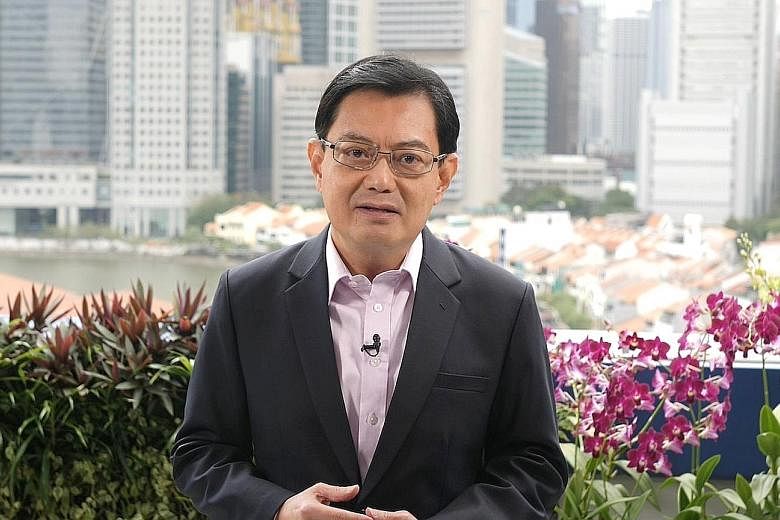While massive fiscal and monetary support has helped to stabilise the global economy, countries also have to deal with longer-term structural challenges that have been accelerated by the Covid-19 pandemic, Deputy Prime Minister Heng Swee Keat said.
Speaking at the meeting of Group of 20 (G-20) finance ministers and central bank governors yesterday, Mr Heng, who is also Finance Minister, said that curbing the spread of the virus takes top priority.
In a Facebook post recapping the virtual meeting, he said: "When conditions are right, countries should also work together to open borders safely. But we should look beyond the immediate term."
One long-term challenge countries have to deal with is climate change, he said, adding that building a lower-carbon future is key.
At the conference, chaired by Italy, he expressed Singapore's commitment to contribute to the newly re-established G-20 Sustainable Finance Study Group co-chaired by the United States and China.
The G-20 brings together the leaders of 19 major economies and the European Union, and was convened to coordinate a response to the 2008 global financial crisis.
The current crisis is the first major recession confronting the grouping since then, and yesterday's meeting sought to discuss how countries can overcome the Covid-19 pandemic and get back on the path to economic recovery.
"We heard many good points and ideas from participants on how we can work together to maintain stability, and get the world back on the path to economic recovery," said Mr Heng. "We must also do more to prepare for future pandemics."
Senior Minister Tharman Shanmugaratnam also participated in the conference. He is one of three co-chairs of the G-20 High Level Independent Panel, which seeks to identify financing gaps for pandemic preparedness and response, and the panel gave an update on its work at the meeting.
Singapore is not a G-20 member, but has been invited to participate in the grouping's meetings in most years. It is the convener of the Global Governance Group, an informal group of 30 small and medium-sized United Nations members established in 2009 to promote greater dialogue between the G-20 and the broader UN membership.
Other invited guests this year are Asean chair Brunei, the Democratic Republic of Congo, the Netherlands, Rwanda and Spain.
At the meeting, G-20 finance ministers also agreed to extend the moratorium on debt interest payments for the world's poorest countries until the end of this year, "in the light of the persistence of significant liquidity needs related to Covid-19".
Italy's Economy Minister Daniele Franco told reporters they did not discuss extending a common framework on how to manage these debt payments to include middle-income countries.
He also said a US proposal for a global minimum corporate tax rate was consistent with ongoing work in the G-20. A deal on this is expected to be reached in July, when the ministers next meet, he added.


